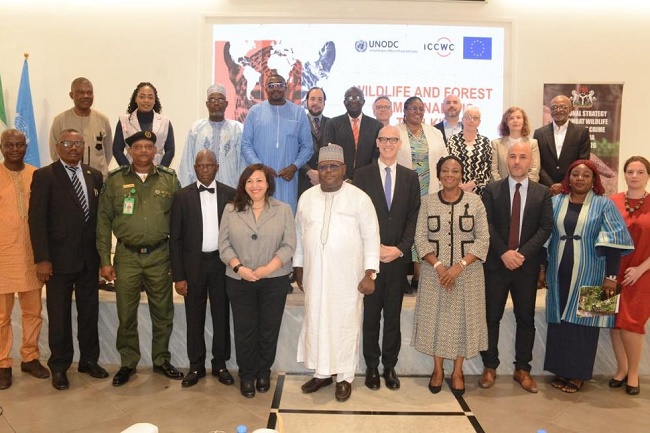The Federal Government of Nigeria, the European Union, and the United Nations Office on Drugs and Crime (UNODC) have all emphasized the importance of a strategic strategy to combat wildlife and forest crimes.
At the “International Consortium on Combating Wildlife Crime (ICCWC): Analytical Toolkit Nigeria” opening ceremony on Tuesday, April 18, 2023, in Abuja, Oliver Stolpe, a UNODC country representative, gave a speech.
He lamented the severe environmental degradation, claiming that Nigeria has one of the greatest rates of deforestation in the world and that between 2002 and 2020, the nation lost 141 kha of humid primary forest or 14% of its entire tree cover.
“Wildlife is not only threatened by the continuous shrinking of their habitat but also by professional poachers and local hunters.
Read Also: osinbajo-says-nigeria-crucial-to-africas-sustainable-energy-transition
“Organised criminal trade of wildlife and forest products through Nigerian ports has created a threat to biodiversity across the entire region.
“Not one of these developments has gone unobserved, neither by the government of Nigeria nor by the international community,” Stolpe said.
He praised the passage of the first national strategy to combat crime, the recent creation of the task force for wildlife enforcement, and initiatives to examine the legal system and strengthen the criminal justice system as being smart actions made.
Additionally, Stolpe stated that these initiatives had begun to pay off in terms of Nigerian law enforcement’s capacity to seize unlawfully traded wildlife and forest goods.
Story adapted from EnviroNews
